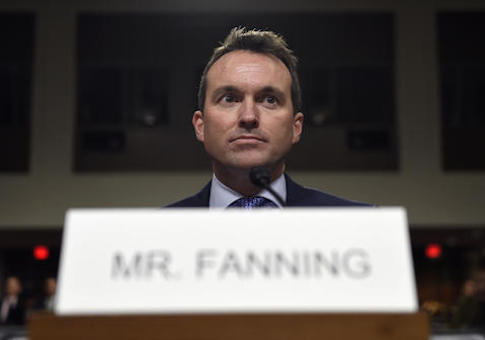Army Secretary Eric Fanning said Thursday that it would be "very hard" for the Donald Trump administration to roll back the Pentagon's decision to open up all combat jobs to women.
Fanning was asked at a summit hosted by Defense One whether Trump would be able to undo the Defense Department's new policies on women in combat roles and transgender troops, which were referred to by moderator and Wall Street Journal reporter Gordon Lubold as "social engineering in the military."
Fanning said the initiatives will be hard to stop because of societal changes. He also said it is harder to reverse decisions about who can "wear the uniform" than those about who can be forced to remove it.
"It's very hard to roll back things completely," Fanning said. "This tide is moving forward and it is difficult to stop. It doesn't mean it doesn't have pivots and ups and downs and so forth, but I feel pretty confident that these changes in this direction are here to stay."
The Pentagon opened up all combat jobs to women in December, over the Marine Corps' objection to women serving in some frontline positions.
A months-long Marine Corps study completed ahead of the decision to integrate women into all combat roles showed that female service members were injured twice as often as male service members and were less accurate with infantry weapons.
It is unclear whether Trump would move to reverse the decision. Rep. Duncan Hunter (R., Calif.), a former Marine who is a possible choice for Pentagon jobs in the Trump administration, told the Washington Times this week that he would reverse the decision to open up infantry jobs to women, in addition to other policies he said "have cut down on the warrior mentality."
Defense Secretary Ash Carter announced in June that the Pentagon would no longer bar transgender individuals from serving in the U.S. military, outlining a plan that requires the Military Health System to pay for health care related to transgender troops' gender transition. The policy, which is being phased in over one year, will eventually allow transgender individuals to enlist in all services.
Current service members in the U.S. military can openly identify as transgender.
Fanning said that the transgender policy could be "easier to unwind or to change" because it is in its early stages, but he said the Pentagon is only keeping up with what is happening in the individual services on the ground.
"We already have transgender soldiers, sailors, airmen, and Marines," Fanning said. "It is all science now. The medical community treats it as a medical issue, which is how we are treating it, and that's a hard thing to walk back."
President Obama appointed Fanning, the first openly gay Army secretary, to the top post in May.
Trump's transition team has not yet announced his choice for defense secretary, though Sen. Jeff Sessions (R., Ala.), a close Trump ally, is seen as the favorite to head the Pentagon. Sen. Tom Cotton (R., Ark.) is also a contender for the job.
Trump's team has not yet visited the Pentagon to begin the transition process, though representatives said Thursday that the so-called "landing teams" that will work with the Defense Department to facilitate the transition will be announced Friday.
Fanning echoed Carter by saying that Pentagon leaders are committed to helping Trump's team smoothly transition into power.
"We will do whatever is necessary to make this as smooth as possible," Fanning said. "There can be no gaps, there can be no seams."
